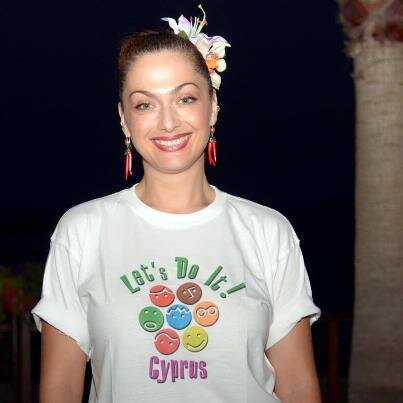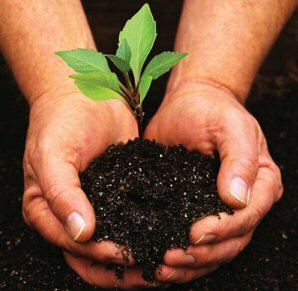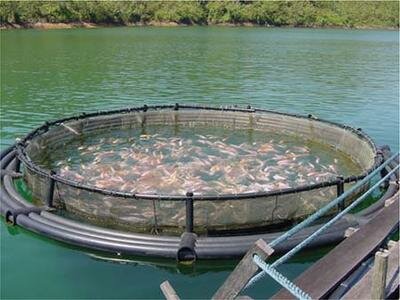
Hair dye uses harsh chemicals including ammonia, peroxide, p-Phenylenediamine or diaminobenzene and research has shown that repeatedly dying hair, especially dark brown or black which contain greater levels of chemicals than lighter colours, can increase the chance of developing some cancers such as non-Hodgkin’s lymphoma, multiple myeloma and cancer of the bladder.
It is also possible to suffer from allergic reactions to hair dyes. The most common allergic reactions to hair dye chemicals are dermatitis of the eyes, ears, scalp and face, which may include a rash, extreme swelling and a severe burning sensation on the scalp.
There has also been concern about the mixing of hydrogen peroxide with ammonia. Once again, research has found that this combination may create potentially carcinogenic chemicals that don’t normally exist in the two liquids prior to mixing them together.
This subject is well documented and there is plenty of information available on the internet should you require more in-depth information but Green Cyprus has summarized the dangers briefly and to the point. So, are there any safer alternatives? How green can your hair colour be? Well, there are various shades….
The safe alternatives for hair colouring can be categorised as safer and safest. The industry has taken out some of the chemicals by producing semi-permanent colouring. However, these products still usually contain p-Phenylenediamine as well as hydrogen peroxide and resorcinol. Although the amount of chemicals is of a lesser degree and may be less hazardous, there is still no evidence to back this up. Since the darker the hair colouring, the more problematic, it is also safer to go blonde or use highlighting only. Whatever is used, it has been recommended to drink a litre of water afterward to help flush out the toxins.
Safer alternatives to ammonia and peroxide are being developed. One hairdressing company that I used to frequent when I lived near London was Daniel Field Organic & Mineral Hairdressing who found a way of making ammonia and peroxide from ingredients such as seaweed, coconut oil and avocado oil which are far less irritating to the skin and have no nasty smell. Daniel Field has an online shop from which you can purchase his organic hair colours
Aveda, another Green Cyprus favourite is another company that offers safer hair-colouring solutions. Anyone who has tried their hair products (and beauty products too) will know that as well as being effective, they also smell divine. So if you’re planning a holiday to the UK or US, book yourself an Aveda colour appointment. Expensive but worth it!
There are safer alternatives that so far produce no health concerns. You can use vegetable-based rinses. These substances do not penetrate the hair shaft, plus they give the hair more shine and make it feel thicker and fuller. The coating action may also aid in protecting the hair from environmental elements such as sun, salt, chlorine and assorted pollutants. Safety tests have found that these rinses contain the least amount of synthetic chemicals of any hair dyes. The down side is that the effect is short-lived, lasting only a few weeks.
Many people have tried henna as a solution. Henna’s effect lasts longer than a vegetable rinse and adds a wonderful shine, highlights and bounce to the hair. Henna enhances your natural colour rather than totally covering it, which allows some of your natural highlights to come through. The coating and sealing advantages mentioned above are inherent with henna.
Finally, the safest and greenest although admittedly not the most effective in terms of permanent colour change are the use of natural products to enhance your natural colour such as coffee or sage to darken and tea, chamomile or saffron to lighten.
What’s available in Cyprus? In terms of do-it-yourself kits, safer colouring with reduced chemicals can be achieved with Apivita’s extensive range of colour kits which are generally available at pharmacies. Also available are Herbatint and NatureTint from health shops which are also ammonia and resorcinol-free.
As for hairdressers, I am not aware of any ‘organic’ hair salons such as Daniel Field or Aveda in Cyprus although I believe there may be one or two out there e.g. Azzuro, Larnaca, that offer a ‘greener’ service with vegan products and use kinder vegetable colourants. If anyone knows of any others that might fit the bill, please let us know so that we can contact them to check. Alternativley, ask them to contact us.



 Tonia Buxton will be supporting Lets DoIt Cyprus clean-up on 29th September. Green Cyprus will also be part of this campaign as we recently announced. We will be cleaning up part of Dasoudi Beach in Limassol which some of you may remember as being the subject of a recent discussion on our page. We would like to round up about 10 volunteers to help us on the day. Interested? We’d love you to help! Let us know if you’d like to join the team….
Tonia Buxton will be supporting Lets DoIt Cyprus clean-up on 29th September. Green Cyprus will also be part of this campaign as we recently announced. We will be cleaning up part of Dasoudi Beach in Limassol which some of you may remember as being the subject of a recent discussion on our page. We would like to round up about 10 volunteers to help us on the day. Interested? We’d love you to help! Let us know if you’d like to join the team….
 Also good news on the environmental-front is the Commissioner of the Environment, Charalambos Theopemptou’s plans to launch an island-wide tree planting campaign by encouraging every single person in Cyprus to plant one or two trees until we have reached one million trees. This is a great idea, not only for the environment in Cyprus as it will help make the place look a whole lot prettier and greener, but to counteract the negative effects of global warming. If you plant trees, it helps clean the air and cool the globe.
Also good news on the environmental-front is the Commissioner of the Environment, Charalambos Theopemptou’s plans to launch an island-wide tree planting campaign by encouraging every single person in Cyprus to plant one or two trees until we have reached one million trees. This is a great idea, not only for the environment in Cyprus as it will help make the place look a whole lot prettier and greener, but to counteract the negative effects of global warming. If you plant trees, it helps clean the air and cool the globe.
.jpg) Here’s a controversial subject about fluoride that is bound to incur the wrath of many a dentist but there have been health scares about it for years.
Here’s a controversial subject about fluoride that is bound to incur the wrath of many a dentist but there have been health scares about it for years.
 According to the report entitled the soy industry is positioning its products as a better alternative to feed made from wild fish—the native diet for many farmed fish. Already, nearly half of the seafood consumed around the world originates through aquaculture or a fish farm, states the report. And there are major concerns over the risks of further expanding industrial agricultural farming models into the world’s oceans. Not only are scientists concerned about the risks of gene transfer and other issues with GMO crops, but the traces of the pesticides, mainly glyphosate (marketed by Monsanto as Roundup), that are used on virtually all genetically modified crops, could damage delicate oceanic ecosystems.
According to the report entitled the soy industry is positioning its products as a better alternative to feed made from wild fish—the native diet for many farmed fish. Already, nearly half of the seafood consumed around the world originates through aquaculture or a fish farm, states the report. And there are major concerns over the risks of further expanding industrial agricultural farming models into the world’s oceans. Not only are scientists concerned about the risks of gene transfer and other issues with GMO crops, but the traces of the pesticides, mainly glyphosate (marketed by Monsanto as Roundup), that are used on virtually all genetically modified crops, could damage delicate oceanic ecosystems..jpg) She was obsessive compulsive on Friends and apparently Courtney Cox is slightly obsessive in real life too. Tobey Maguire inspired this MILF to start living an organic lifestyle and she just flew with it. She buys everything organic from skin care products to bedroom linens!
She was obsessive compulsive on Friends and apparently Courtney Cox is slightly obsessive in real life too. Tobey Maguire inspired this MILF to start living an organic lifestyle and she just flew with it. She buys everything organic from skin care products to bedroom linens!.jpg) Julia Roberts lives organically and she grows an organic garden! This seems to be a pretty fast moving trend; in cities people are growing organic gardens in their apartment balconies and courtyards. It’s actually really an excellent hobby, it inspires local eating and is fun to watch your babies grow and then be able to show off your bounty to friends!
Julia Roberts lives organically and she grows an organic garden! This seems to be a pretty fast moving trend; in cities people are growing organic gardens in their apartment balconies and courtyards. It’s actually really an excellent hobby, it inspires local eating and is fun to watch your babies grow and then be able to show off your bounty to friends!.jpg) Before Kelly Osbourne started talking about getting tattoos removed she had removed some other things from her life. She traded in her partying ways to make organic “mocktails.” Not only did she switch to “mocktails,” Kelly also started taking organic supplements to make sure her body was getting all the nutrients it needs.
Before Kelly Osbourne started talking about getting tattoos removed she had removed some other things from her life. She traded in her partying ways to make organic “mocktails.” Not only did she switch to “mocktails,” Kelly also started taking organic supplements to make sure her body was getting all the nutrients it needs..jpg) Star of ABC’s new medical drama Off the Map and new Golden Globe nominated films Barney’s Version and Casino Jack, Rachelle Lefevre is living and working to make Los Angeles a more organic place. She first got involved, thanks to Amy Smart, in Environmental Media Association (EMA) which promotes the building of local organic gardens in inner-city L.A. Now, Lefevre eats organically, which she attributes to ending the stomach pains she was getting when eating meats that were not organic.
Star of ABC’s new medical drama Off the Map and new Golden Globe nominated films Barney’s Version and Casino Jack, Rachelle Lefevre is living and working to make Los Angeles a more organic place. She first got involved, thanks to Amy Smart, in Environmental Media Association (EMA) which promotes the building of local organic gardens in inner-city L.A. Now, Lefevre eats organically, which she attributes to ending the stomach pains she was getting when eating meats that were not organic..jpg) And obviously can’t talk about celebrities doing any good in the world without mentioning Brad Pitt and Angelina Jolie. Not only are these two adopting kids that need better living but also they lease Chateaus in France that contain 75-acre organic vineyards. Only these two could promote drinking responsibly and more beautifully through French culture and the good of organic nurturing.
And obviously can’t talk about celebrities doing any good in the world without mentioning Brad Pitt and Angelina Jolie. Not only are these two adopting kids that need better living but also they lease Chateaus in France that contain 75-acre organic vineyards. Only these two could promote drinking responsibly and more beautifully through French culture and the good of organic nurturing.